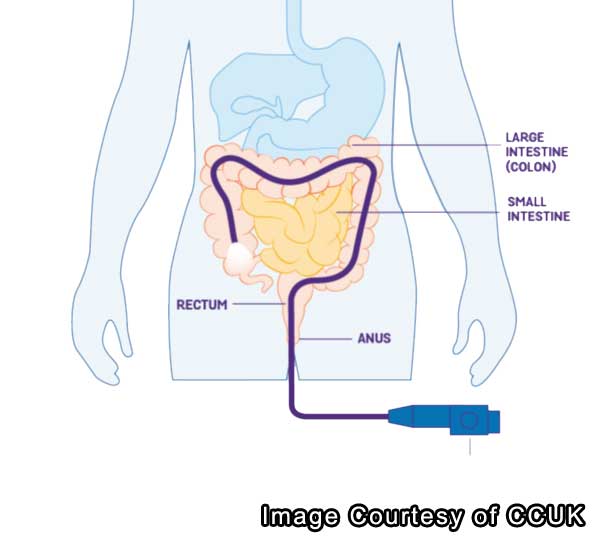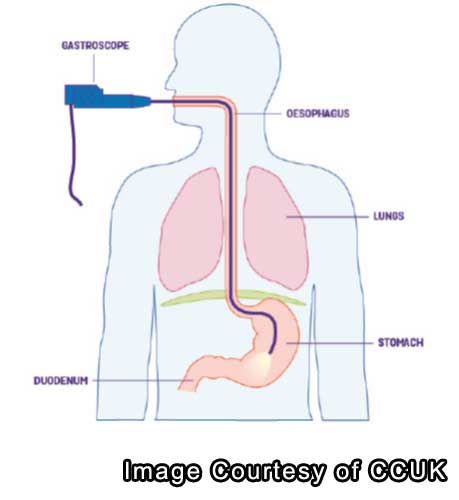Treatments
Anorectal bleeding
Anorectal bleeding is the name given to any bleeding which comes from the back passage. It is very common and is not serious in the vast majority of cases.
Bleeding from the anal canal is bright red and fresh and is nearly always due to benign conditions such as piles or fissures. If the blood is dark, clotted or mixed in with bowel movements it is likely to be coming from higher up the bowel and could have a variety of causes, such as polyps, diverticular disease and cancer.
Anyone who notices any bleeding should seek medical help early so that conditions such as cancer can be ruled out. Miss Gupta will ask you questions before carrying out an examination. If necessary, she will arrange further tests, such as a scan or colonoscopy, to help diagnose the cause of the bleeding before recommending treatment which can help.
Change In Bowel Habit
Information coming shortly.
Endoscopy
An endoscopy is a procedure where organs inside your body are looked at using an endoscope, which is a long, thin, flexible tube with a camera at the end. It can be used to investigate symptoms so that a diagnosis can be reached, or to help perform laparoscopic surgery
Miss Gupta regularly carries out three different types of endoscopy, which are:
Gallbladder surgery (cholecystectomy)
A cholecystectomy is an operation to remove the gallbladder. It can be used to treat gallstone pancreatitis or gallbladder polyps, but is usually carried out to address complications caused by gallstones, such as abdominal pain, sickness and vomiting. Some patients with gallstones also develop a temperature and become jaundiced (yellow).
Miss Gupta has experience of performing cholecystectomies using laparoscopic (keyhole) surgery, which minimises the risk of complications and gives patients the best chance of a quick recovery. She will carry out the operation under general anaesthetic, and will make four small incisions in your abdomen so that the gallbladder – which sits just below the liver and collects and stores bile – can be removed.
Most patients do not need to stay in hospital overnight following this surgery and can return home the same day.
Haemorrhoids
Haemorrhoids, which are often known as ‘piles’, are lumps inside and around the back package which can bleed and cause discomfort. A common condition, they are caused when pressure on the veins increases due to constipation or during pregnancy and childbirth.
Miss Gupta offers various treatments for haemorrhoids, such as advising on lifestyle changes, out-patient procedures such as banding, where small rubber bands are applied to the base of the pile so that they fall away, and surgical treatments including open and stapled haemorrdoidectomy. Before beginning treatment, she may also carry out an examination of the bowel to rule out other conditions, such as cancer.
Hernia surgery
A hernia develops when an abdominal organ, bowel or fatty tissues push through a gap or weakness in the muscles. This causes a bulge or lump in the groin or abdomen, followed by pain and discomfort which can make your usual activities more difficult.
Most hernias are reducible, which means they can be pushed back into the abdominal cavity, especially when you lie down. If you cannot push the lump back in or it is very painful, you should see a specialist as soon as possible. This is because the hernia may have become strangulated, which cuts off the blood supply to the intestine and can be life-threatening.
Hernias cannot heal themselves or be treated with medication, which means that surgery is the only effective way you can get back to enjoying your usual activities. Miss Gupta specialises in laparoscopic (keyhole) hernia repair, which is the least invasive treatment and usually allows a prompt return to normal activities.
Laparoscopic surgery
Miss Gupta is an expert in laparoscopic (keyhole) surgery, and carries out her NHS work at Colchester Hospital, which is a recognised centre of excellence and was designated as a national training centre for laparoscopic surgery in 2009. She also regularly trains other surgeons in specialist keyhole techniques both nationally and internationally, as well as teaching at the world-renowned ICENI centre, which is on the Colchester Hospital site.
During your appointment, Miss Gupta will carefully explain all of the options available to you, along with the benefits and potential risks of each. She will also encourage you to ask any questions before you come to a joint decision about which is the safest and most appropriate procedure for you. Often this will be laparoscopic surgery, as it is less painful and recovery times are quicker than with more invasive techniques, which usually mean a longer stay in hospital.
To carry out the surgery, Miss Gupta will make small incisions in the skin and use a special camera and instruments to carry out the operation while she watches on a large screen. Following the procedure, she will provide extensive advice to help you recover as quickly as possible, as well as a full aftercare service.

